"I'm not attracted to guys with beards. Maybe that's why Jesus bores me. Maybe if he shaved I'd dig him."
~ Patti Smith, GQ, Dec 2005 Issue
“Ever tried. Ever failed. No matter. Try Again. Fail again. Fail better.” ~ Worstward Ho, Samuel Beckett
~ Carrie Brownstein
"I'm not attracted to guys with beards. Maybe that's why Jesus bores me. Maybe if he shaved I'd dig him."
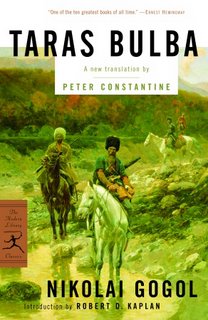 Taras Bulba by Nikolai Gogol, translated by Peter Constantine.
Taras Bulba by Nikolai Gogol, translated by Peter Constantine. "I was always in competition with the other big-name columnists -- who would shamelessly rob from me. You know, it's like I would be in Salon on Thursday, and something from it would show up in Maureen Dowd's weekend column, and so on. But I had to make sure that when people went to it that it didn't just seem to be a rehash of someone else's column."
"I, Badra bent Salah ben Hassan el-Fergani, born in Imchouk under the sign of Scorpio, shoe size thirty-eight, and soon to reach my fiftieth year, make the following declaration: I don’t give a damn that Black women have delectable cunts and offer total obedience; that Babylonian women are the most desirable and women from Damascus the most tender to men; that Arab and Persian women are the most fertile and faithful; that Nubian women have the roundest buttocks, the softest skin, and passion that burns like a tongue of fire; that Turkish women have the coldest wombs, the most cantankerous temperament, the most rancorous heart, and the most radiant acumen; and that Egyptian women are soft-spoken, offer kind-hearted friendship, and are fickle in their constancy."
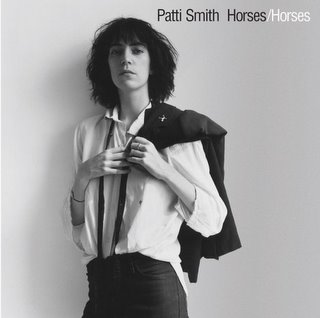
The first time I saw Robert he was sleeping. I stood over him, this boy of twenty, who sensing my presence opened his eyes and smiled. With few words he became my friend, my compeer, my beloved adventure.
When he became ill I wept and could not stop weeping. He scolded me for that, not with words but with a simple look of reproach, and I ceased.
When I saw him last we sat in silence and he rested his head on my shoulder. I watched the light changing over his hands, over his work, and over the whole of our lives. Later, returning to his bed, we said goodbye. But as I was leaving something stopped me and I went back to his room. He was sleeping. I stood over him, a dying man, who sensing my presence opened his eyes and smiled.
When he passed away I could not weep so I wrote. Then I took the pages and set them away. Here are those pages, my farewell to my friend, my adventure, my unfettered joy.
Jesus died for somebody's sins
But not mine
Meltin’ in a pot of thieves
Wild card up my sleeve
Thick heart of stone
My sins my own
They belong to me. Me

Clenched Soul
We have lost even this twilight.
No one saw us this evening hand in hand
while the blue night dropped on the world.
I have seen from my window
the fiesta of sunset in the distant mountain tops.
Sometimes a piece of sun
burned like a coin in my hand.
I remembered you with my soul clenched
in that sadness of mine that you know.
Where were you then?
Who else was there?
Saying what?
Why will the whole of love come on me suddenly
when I am sad and feel you are far away?
The book fell that always closed at twilight
and my blue sweater rolled like a hurt dog at my feet.
Always, always you recede through the evenings
toward the twilight erasing statues.
But I'm not sure the Jesus imagery in "Narnia" is any more overt than what you get in "E.T." (he does, after all, have the power to heal and to rise from the dead).It warranted a raised eyebrow. ;)
'When friends die, one's own credentials change: one becomes a survivor. Graham Greene has already had biographers, one of whom has served him mightily. Yet I hope that there is room for the remembrance of a friend who knew him - not wisely, perhaps, but fairly well - on an island that was "not his kind of place," but where he came season after season, year after year & where he, too, will be subsumed into the capacious story.'I love Graham Greene's writing. Will write more on him when I get around to The Quiet American.
Eliza Naumann, a seemingly unremarkable eleven-year-old, expects never to fit into her gifted family: her father, Saul, absorbed in his study of mysticism; her brother, Aaron, the vessel of his father's spiritual ambitions; and her brilliant but distant lawyer mother, Miriam. But when Eliza discovers an aptitude for competitive spelling, Saul takes it as a sign that she is destined for greatness. In this altered reality, Saul ushers her into his hallowed study and lavishes upon her the attention previously reserved for Aaron, who in his displacement embarks on a lone quest for spiritual fulfilment that leads him to the Hare Krishna. And when the unveiling of Miriam's secret life triggers an almighty explosion, it is Eliza who must order the chaos.
Ms. Gong's hauteur and soaring cheekbones work better for her character, a woman of acid resolve. Although there are moments when Hatsumomo comes perilously close to Dragon Lady caricature ("I will destroy you!"), the actress's talent and dignity keep the performance from sliding into full-blown camp. But even the formidable Ms. Gong cannot surmount the ruinous decision to have her and Ms. Zhang, along with the poorly used Mr. Yakusho, deliver their lines in vaguely British-sounding English that imparts an unnatural halting quality to much of their dialogue. The. Result. Is. That. Each. Word. Of. Dialogue. Sounds. As. If. It. Were. Punctuated. By. A. Full. Stop. Which. Robs. The. Language. Of. Its. Watery. Flow. And. Breath. Of. Real. Life. Even. As. It. Also. Gives. New. Meaning. To. The. Definition. Of. The. Period. Movie.
"Memoirs of a Geisha" is rated PG-13 (Parents strongly cautioned). The film is as discreet as an unopened waterlily.
Chinese actresses play Japanese geisha (in a period concurrent with the Sino-Japanese war) and speak English the way Hollywood has always imagined Asians do, all stilted syntax and awkward enunciations ("You are! To become! Geisha!").I laughed when I read it. So typical.
"Keepers of notebooks are a different breed altogether, lonely and resistant rearrangers of things, anxious malcontents, children afflicted apparently at birth with a sense of loss."~ Joan Didion
Obviously if you know me, you would already know about some of my affectations. One of them being my "thing" with fountain pens.
Recently I've acquired a new affectation: Moleskine Notebooks (pronounced mol-a-skeen-a). For the uninitiated, here's a a link to Wikipedia on Moleskine.
Moleskine is produced by an Italian stationary company Modo&Modo. They hardsell the moleskine as "the legendary notebook of Hemingway, Picasso, Chatwin."
Now, I'm not sure about Hemingway or Picasso, but I first learnt about Chatwin's compulsion for moleskine from The Songlines:
For lunch we had beer and a salami sandwich. The beer made me sleepy, so I slept until four. When I woke, I started rearranging the caravan as a place to work in. There was a plyboard top which pulled out over the second bunk to make a desk. There was even a swiveling office chair. I put my pencils in a tumbler and my Swiss Army knife beside them. I unpacked some exercise pads and, with the obsessive neatness that goes with the beginning of a project, I made three neat stacks of my 'Paris' notebooks. In France, these notebooks are known as carnets moleskines: 'moleskine', in this case, being its black oilcloth binding. Each time I went to Paris, I would buy a fresh supply from a papeterie in the Rue de l'Ancienne Comédie. The pages were squared and the end-papers held in place with an elastic band. I had numbered them in series. I wrote my name and address on the front page, offering a reward to the finder.
Some details on the product:
The Moleskine Notebooks have a cardboard bound cover with rounded corners and an elastic closure. An expandable inner pocket made of cardboard and cloth contains the Moleskine history. The acid free paper pages are thread bound.
Pocket size: 9 x 14 cm (3½ x 5½").
Large size: 13 x 21 cm (5 x 8¼").
I avoid ruled notebooks, preferring squared or plain pages for my scribbling.
[Squared Moleskine Notebook]
[Plain Moleskine Notebook]
I like the freshness of new notebooks. The paper is crisp, clean and you almost can't bear to sully the surface. Problem is - a notebook isn't much use if we don't write in it. So I usually break in my notebooks with a quote or something transferred from an older notebook - a sense of continuity in the chronicle perhaps.
I broke in my first moleskine (purchased 1st December 2005) by hand-copying T. S. Eliot's Four Quartets unto the pages. By slowly and meticulously writing out the poem we're forcing ourselves to re-read them in a more deliberate manner. And goodness knows T. S. Eliot needs to be re-read until he starts to make sense.
RELATED LINKS:
Moleskine - the English site by the makers of the Moleskine
BBC h2g2 on Moleskine - it's a lifestyle choice, moleskine! ;p
Moleskinerie - a network for moleskine fans around the globe
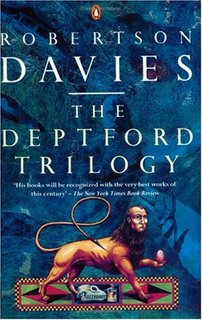 Wrapped up Virginia Woolf's "A Room of One's Own" last week and started on Robertson Davies' "The Deptford Trilogy."
Wrapped up Virginia Woolf's "A Room of One's Own" last week and started on Robertson Davies' "The Deptford Trilogy."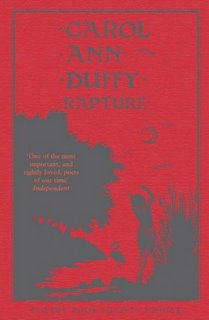
We live in a period of declining stars. Few celebrities these days (aside from the smoldering Angelina Jolie) seem to have complex psychic lives.
~ Camille Paglia
"She was night-time and words were the dream."
~ From Art Objects, on Virginia Woolf
"Sterling Truffle Bars blend the best of white, milk and dark chocolate, fruit, nuts and liqueurs with culinary artistry. Each decadent truffle bar flavor has an extraordinary and colorful hand-painted chocolate design. Available in 12- and 6-ounce sizes, the triangular bars are to be served sliced, exposing beautiful layers of ganache. Perfect as unique and elegant gifts, dessert garnishes or accents to a wine, champagne or cheese tasting, Sterling Truffle Bars are as versatile as they are beautiful and delicious"
Okay, so how did this blog become an advertisement for confectionary? Saw these colourful bars of delight and was so captivated by the swirling colours ("bright colour! pretty!") - had to put it up. Have added the pix of a few of my favourite flavours.

Double Hazelnut Caramel
A striking, hand-painted truffle with contrasting tiers of milk chocolate flavored with rich hazelnut puree, white chocolate infused with caramel, dark chocolate and a hint of ground hazelnut
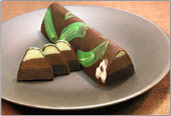
Cappuccino Liqueur with a Twist
An artfully hand-painted truffle filled with the mingling flavors of milk chocolate, coffee-infused white chocolate, dark chocolate, coffee liqueur and a subtle finish of lemon.

Banana Honey Caramel
A hand-painted truffle with contrasting tiers of milk chocolate flavored with banana liqueurs, white chocolate infused with caramel, dark chocolate and a hint of honey.
"The buying of more books than one can read is nothing less than the soul reaching towards infinity, and this passion is the only thing that raises us
above the beast that perish."~ Alfred Edward Newton
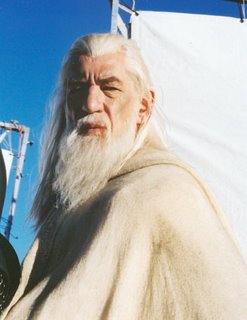 Added this picture of SIR Ian McKellen as Gandalf the White. Just in the mood for the Sexiest Man Past the Age of Sixty And Still Alive And Kicking. (He was born in 1939, so go count)
Added this picture of SIR Ian McKellen as Gandalf the White. Just in the mood for the Sexiest Man Past the Age of Sixty And Still Alive And Kicking. (He was born in 1939, so go count)[Talking about Every Flavor Beans]Ralph Fiennes as Voldemort. Ahh...
Dumbledore: I was unfortunate enough in my youth to come across a vomit-flavored one, and since then I'm afraid I've rather lost my liking for them. But, I think I could be safe with a nice toffee. [eats it] ...Ah, alas, earwax.

 As mentioned earlier, I'm in the middle of Jeanette Winterson's Oranges Are Not the Only Fruit. I've decided to re-read the book because I've recently purchased an Out of Print Bloomsbury Classics edition of the title. (Cover by the side) This means I now possess three different editions of the title.
As mentioned earlier, I'm in the middle of Jeanette Winterson's Oranges Are Not the Only Fruit. I've decided to re-read the book because I've recently purchased an Out of Print Bloomsbury Classics edition of the title. (Cover by the side) This means I now possess three different editions of the title.It is the nature of stone to covert bone.
At one time or another there will be a choice: you or the wall.
Humpty Dumpty sat on the wall.
Humpty Dumpty had a great fall.
The City of Lost Chances is full of those who chose the wall.
All the king's horses and all the king's men.
Couldn't put Humpty together again.
Then is it necessary to wander unprotected through the land?
It is necessary to distinguish the chalk circle from the stone wall.
Is it necessary to live without a home?
It is necessary to distinguish physics from metaphysics.
Yet many of the principles are the same.
They are, but in the cities of the interior all things are changed.
A wall for the body, a circle for the soul.~ from Oranges Are Not the Only Fruit
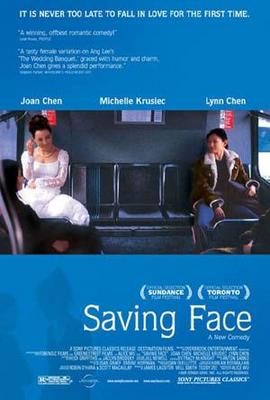
"I wrote SAVING FACE as a love-letter to my mother. The character of Ma begins the movie as a woman with all major decisions in life seemingly made; at 48, she has lived a proper life and is now essentially just living to die. That she ultimately breaks with tradition and lives on her own terms is a triumph I wanted my mother – and the world – to see. I suppose if there is one thing I am trying to say with the film, it is that no matter who you are – Asian or black, gay or straight, young or old – that everyone basically wants to love – and that love can start at any point in your life that you want it to. I made SAVING FACE because I wanted my mother to know that it was never too late to fall in love for the first time. And that it is not by doing things right, but by sometimes getting them wrong, that we launch the journey that allows us to come into our own."
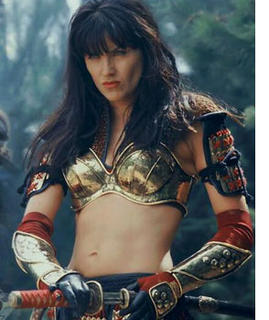 WASHINGTON (Reuters) - Xena, the possible 10th planet in our solar system, has its own moon, a dim little satellite called Gabrielle, its discoverers reported.
WASHINGTON (Reuters) - Xena, the possible 10th planet in our solar system, has its own moon, a dim little satellite called Gabrielle, its discoverers reported.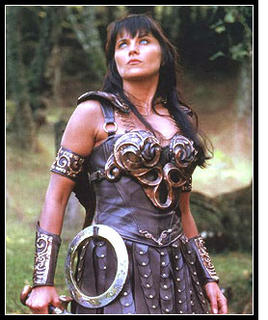
A follow-up on my entry on the copy protection on KT Tunstall's CD.
This issue of Rolling Stones reports fans of Dave Matthews Band, Foo Fighters and Switchfoot are mighty pissed by similar Copy Protection software rigged into their CDs.
Currently, it's mainly labels like Sony BMG and EMI that's adding the copy protection software into their CDs. It's not yet know how this affects CDs sales, from pissed off fans - like myself who are refusing to pick up a copy protection CD in protest. Apparently freewares are offered online to decode the copy protection. And Sony BMG will actually email detailed instructions on how to use the decoding software if you ask.
Still - why make fans of the musicians go through these extra hoops? Why punish the fans?
Labels will work to keep their profits, naturally. But this measure really only serve to alienate the very people who bothers to buy an original CD - because someone used to downloading the mp3 files illegally isn't going to be really affected by the copy protection CDs. Simply because he or she isn't going to buy one.
Sale of CDs really goes to the profit margins of record companies, not the artistes. Yes, I know that - but really, do I care if the singer/musician I like can't afford an expensive Ferrari?
What matters to me is that record companies are only willing to sign musicians who can sell CDs for them. A talented musician who can't sell his/her first CD will probably not have a second one. Now, that matters to me.
My favourite example here is Joss Whedon's Serenity. The TV series died a premature and unnecessary death because the TV network didn't know what to do with it. But it was the overwhelming DVD sales that finally pushed convinced the powers that be a Serenity movie was worth the investment.
I don't care if Joss Whedon don't get rich from the Serenity franchise. Good for him if he is. But I am looking forward to the movie.
And yes, I am one of the many who bought the original DVD boxset for Serenity.